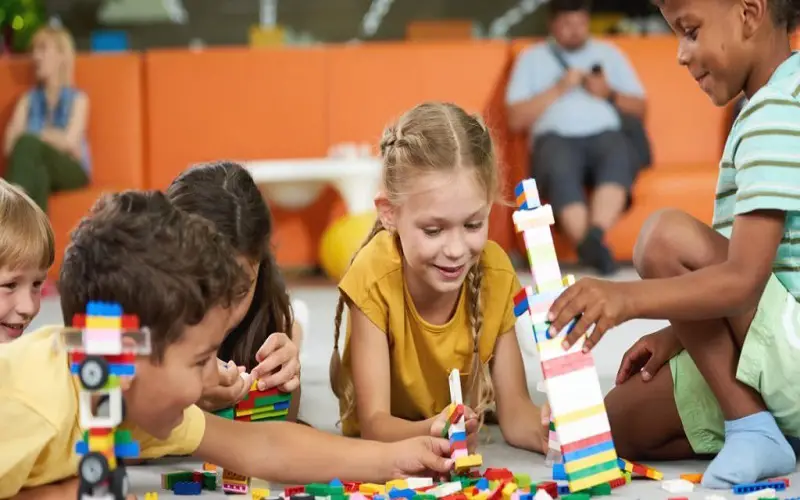The role of kindergarten in Bahrain can be described as a crucial aspect of education. Children in this country are mandated to get an education from the government, and free public schools are available to all residents. Moreover, children who live in Bahrain are provided with free transportation to their schools. In Bahrain, the nursery is a significant part of a child's development, as this is the stage where children experience their first real transformations. Thus, kindergartens and preschools make every transition a positive and enjoyable experience.
Assimilate arriving children to the school environment
Providing supports to newcomers and their families can help them assimilate to their new school environment and become self-sufficient. These supports can also help them achieve academic success and have opportunities for the future. Many people assume that children are malleable and easily adapt to new environments, but assimilation does not occur by osmosis. Rather, it requires some intentional effort. Here are three strategies that can help you assimilate arriving children to their new school environment:
A welcoming community should embrace new refugees and help them integrate. Schools should strive to meet the unique needs of children from refugee or immigrant backgrounds, such as cultural and language barriers. Assimilation of newcomers can help alleviate some of the traumatic experience of resettlement and provide opportunities for newcomers to feel welcome and included. Assimilation can be difficult when children from new environments are not familiar with local culture and language.
Promote language acquisition, literacy and numeracy
The educational system in Bahrain focuses on promoting language acquisition, literacy and numeracy development, as well as social and emotional well-being, through a curriculum rooted in the values and traditions of Bahrain. Qualified teachers incorporate innovative approaches into their lessons to make learning fun and interesting. Interactive games and STEAM-based activities are used to develop language skills and provide cognitive training. The educational curriculum promotes positive self-image and social and emotional well-being. In addition to language learning, children in Bahrain also learn to socialize, make friends and manage themselves in groups.
The Ministry of Education is responsible for overseeing public education in Bahrain. The Ministry is the official body that formulates and implements educational policy. It appoints undersecretaries to oversee specific departments and sets policy objectives. The five sectors within the Ministry of Education include kindergartens, primary schools, secondary schools, universities and private educational institutions. The education ministry is a part of the larger Arab education system.
Help children develop social skills
To help your child build his or her social skills at kindergarten in Bahrain, you should start by discussing feelings with him or her. This will help them understand the feelings of others, and interpret their own. Children with good social skills will also know how to express themselves, instead of acting out their frustrations. Teaching empathy involves giving examples of situations, and substituting the situation with a more appropriate one. Your child will learn that the best way to resolve conflict is to be kind to others.
Social skills are important for kids, and the early they are learned, the better. A child with good social skills will be more likely to develop satisfying relationships with others and be able to adjust to the different environments of society. As a child grows up, they will use social skills they have learned at home and at school to form friends and interact with people outside of their peer groups. Once they learn how to deal with other people in these environments, they'll be ready to take on the challenges that come with navigating the social world.
Social skills include recognizing different types of people and learning to interact with them. Children can learn general social skills such as how to share, how to wait their turn, and how to be polite. They can also develop specific social skills like being generous and patient. Developing these skills early in life will improve their chances of being accepted by their peers. This is one of the main reasons why kindergarten teachers in Bahrain strive to develop their students' social skills.
As previously stated, gender differences in social skills were found in the same study. Children in kindergarten in Bahrain had higher scores in cooperation and self-control, but the overall social skill score of both parents and teachers was similar. As with other aspects of social development, gender differences in the domains of assertiveness and cooperation are important to take into account when fostering social skills among your children. And remember, a child's age and family status should be taken into consideration when helping him develop social skills.
Teach social Arabic to older children twice a week
There are several ways to teach social Arabic to children. The most important method is to talk about people of Arab heritage and provide children with pictures and stories that show them how different people live in different countries. Another effective strategy is to counter the common stereotypes and give children alternative information. This may involve giving photos or direct experiences that contradict inaccurate ideas. You should get your child admitted in the kindergarten in Bahrain as soon as possible for their rapid growth.
0






